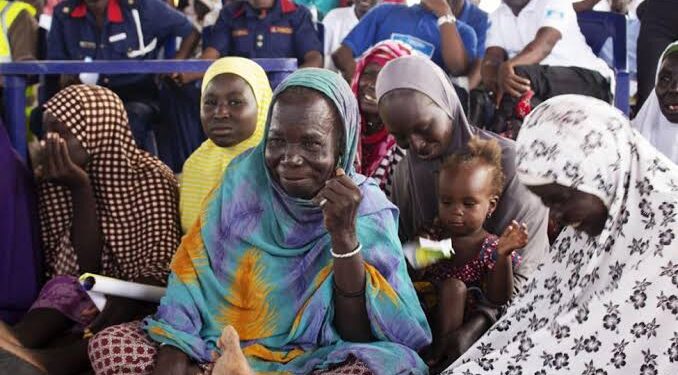**Meta Description:** Nigeria faces challenges in meeting global anti-trafficking standards, slipping to Tier 2 Watch List. Factors include IDP vulnerability and terrorism impact. Efforts to combat trafficking crucial for international standing
Nigeria contends with challenges to regain its Tier 1 status in global anti-trafficking efforts, slipping to the Tier 2 Watch List in recent years. The U.S. State Department’s Trafficking in Persons Report delineates countries into Tiers based on their adherence to minimum standards outlined in the TVPA.
Countries in Tier 2 are those whose governments do not fully meet the TVPA’s minimum standards but are making significant efforts to do so. Meanwhile, the Tier 2 Watch List comprises nations showing substantial efforts but falling short of meeting the minimum standards.
For countries on the Watch List, the State Department emphasizes the importance of addressing a significant number of trafficking victims or a notable increase. This includes evidence of enhanced efforts in investigations, prosecutions, victim assistance, and diminishing complicity in trafficking by government officials.
Tier 3 includes countries not fully meeting minimum standards and not demonstrating significant efforts to do so. A unique provision in the TVPA stipulates that countries on the Tier 2 Watch List for two consecutive years may be ranked Tier 3 in the following year.
Despite Nigeria maintaining Tier 1 status from 2009 to 2011, recent years have seen a decline. The nation slipped to the Tier 2 Watch List in 2017, 2018, and 2020, after holding the same status in 2004 and 2008. Reasons for this decline, as stated in the 2023 report, include the vulnerability of approximately two million internally displaced persons (IDPs) and over 340,000 Nigerian refugees to traffickers. Limited access to economic opportunities and justice systems amplifies this vulnerability.
The report highlights the impact of terrorism, exacerbating vulnerability in the North and hampering the government’s response to trafficking threats. Previous instances of traffickers exploiting IDPs moving to cities and neighboring countries for forced labor contribute to the complex situation.
Imaobong Ladipo-Sanusi, Executive Director of the Women Trafficking and Child Labour Eradication Foundation, stresses the need for increased inter-agency collaboration. She emphasizes the institution of robust mechanisms to combat trafficking, raise awareness, and facilitate victim rehabilitation.
Efforts to combat trafficking are deemed crucial not only for the well-being of vulnerable populations but also for Nigeria’s global standing in the fight against human trafficking.












